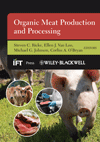Meat-vegetable hybrids appeal to healthy eaters

A little flexibility isn’t a bad thing. With all of the food options available today, it turns out consumers don’t want to have to choose between only eating meat or a plant-based diet. Blended meat options — real meat combined with vegetables or plant-based proteins — offer a compromise.
Formulated products are the perfect vehicle for these new protein hybrids. Perdue’s Chicken Plus dinosaur-shaped nuggets, for example, combine white chicken breast with vegetables (cauliflower, chickpeas and plant protein).
“We knew that consumers, especially younger consumers, are looking for more plant-based options and also simply looking to increase their vegetable intake,” says Jon Swadley, vice president of marketing, Perdue Premium Prepared Foods, in the San Francisco Bay area. “By blending plant protein and vegetables with the Perdue chicken families love, Perdue Chicken Plus not only helps meet demands for millions of parents with picky eaters, but it appeals to the growing number of flexitarian families who have an increased commitment to getting more plants and vegetables in their diets.”
Flexitarians are committed to eating more plants and vegetables while still eating some meat. They now make up to 38 percent of the US consumer market, according to Innova Market Insights. A similar demographic are omnivores, 43 percent of consumers who say they “eat a little of everything, with no restrictions,” reports The Hartman Group.
Since its launch, the Chicken Plus line has become one of Perdue’s best sellers, says Swadley. “We are considering ways to evolve the line based on consumer and customer feedback, including experimenting with more gluten-free breading options like what you may have seen in our Perdue Simply Smart Organics line, as well as looking for new innovations to expand the line,” he says.
This January, Perdue launched Chicken Plus Chicken Tots as a snacking and side alternative, which are chicken nuggets combined with tater tots (made with all-white-meat chicken, seasonings and veggies).
“As we look to the future, we would like to find more ways to diversify our offerings and meet growing demand for plant-based foods that deliver on taste, texture and nutrition, while also offering flavor experiences that are familiar,” says Swadley.
Partnering with plant-based proteins
Protein formulations like Chicken Plus utilize solutions that combine plant-based proteins, fibers, fats and flavors that can blend into their ground meat.
“Consumers are interested in eating foods that taste great, and if they happen to be better for us and the planet, that's a nice bonus,” says Paul Shapiro, co-founder of The Better Meat Co., based in West Sacramento, Calif., which provides plant-based products to Perdue Farms. “Our main focus is on scaling up the best-tasting, most sustainable meat experience the world has to offer.”
To that end, the company has created Rhiza mycoprotein, a whole food, potato-based fermented ingredient that can produce a neutral-tasting, alternative meat.
"Our Rhiza mycoprotein has many advantages over plant protein isolates, including that it’s a whole food and has a naturally very meat-like texture with virtually no processing required,” says Shapiro. “However, we’re not seeking to compete against plant proteins. We’re competing against animal meat.”
The Rhiza mycoprotein creates a meat-like texture, but it has zero cholesterol and zero saturated fat, says Shapiro, while having more protein than eggs and more iron than beef. “And of course, it has a fraction of the environmental footprint that animal meat has,” he says.
Last fall, Austin, Minn.-based Hormel Foods Corporation announced it would partner with The Better Meat Co. to bring new mycoprotein and plant-based protein products to the marketplace.
As consumers focus more on their own health and wellness, innovative products are ready to meet their needs.
Looking for a reprint of this article?
From high-res PDFs to custom plaques, order your copy today!







